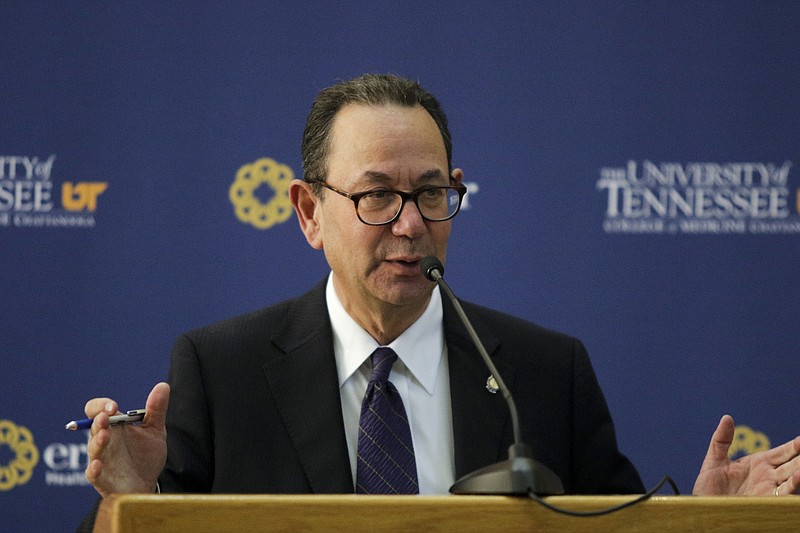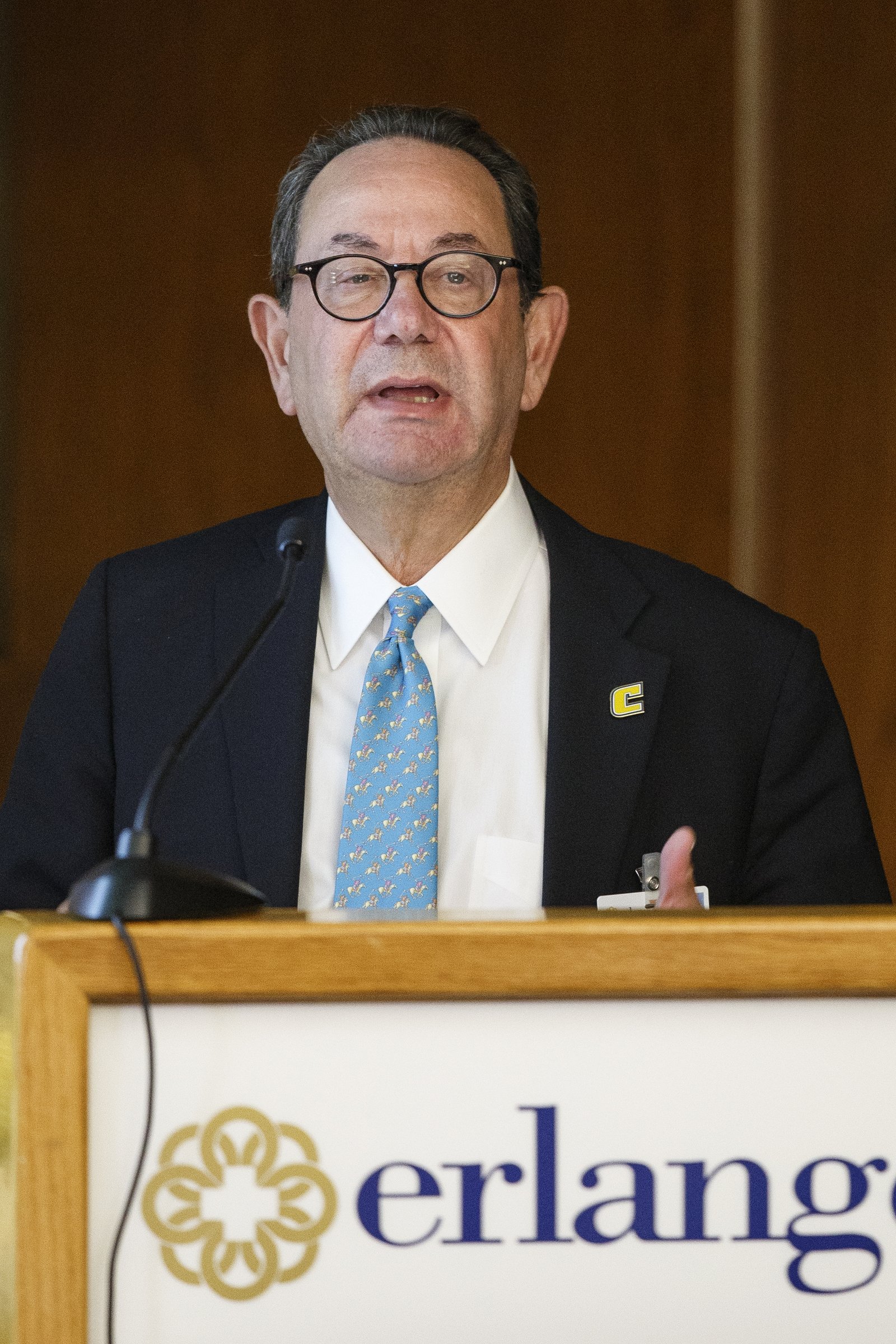Less than two weeks after Erlanger Health System's Board of Trustees held a special meeting to discuss the future of CEO Kevin Spiegel, board members will meet Wednesday to take up the same issue.
"We're still looking at what our future leadership looks like," Chairman Mike Griffin said Tuesday.
The board last met publicly Aug. 29. At that meeting, no vote was taken on Spiegel's leadership. Instead, trustees tabled the discussion about the CEO's future and opened the floor for others to speak. Most of the comments were in support of Spiegel and came from physicians, as well as trustee Jim Sattler. Spiegel also addressed the packed room.
Wednesday's meeting could have the same end result, Griffin acknowledged, hedging on whether a vote would be called for.
The board is "on the path we need to be on," he said.
Spiegel took over leadership of Chattanooga's only public hospital in April 2013 after serving as CEO at Methodist Healthcare in Memphis for five years.
At the Aug. 29 meeting, Spiegel gave an upbeat defense of his tenure at the hospital.
"The financial position at Erlanger has never been healthier and never been stronger," he said. Highlights in his role at the helm of what has become the nation's 10th largest public hospital include a 92% increase in net patient revenue, dramatic market share growth and improved bond ratings.
While Spiegel touted the hospital's financial strength, the latest publicly available financial report for Erlanger showed the health system's operating income for the third quarter - which ended March 31 - was nearly $8 million below budget at around $2.7 million. That brought Erlanger's year-to-date operating income to $2.8 million, about $9 million under budget.
Erlanger ended last fiscal year with a bottom-line net income of $526,913, due largely to the high cost of implementing new electronic health record software. Last year's financial performance caused Erlanger's bond ratings to be downgraded from "positive" to "stable."
A more complete picture of Erlanger's financial health will be presented at the board's next budget and finance committee meeting on Oct. 21, when both the audited fiscal year 2019 report and Erlanger's first quarter of fiscal year 2020 financial report will be made public.
The Aug. 29 meeting was called under mounting pressure from hospital staff after a letter from the medical executive committee surfaced in June. That letter said the committee of 17 doctors that oversees the quality and safety of medical care at Erlanger had "no confidence in the structure of the current Executive Leadership to ensure quality and safety of patient care." It cited ongoing operational problems, such as inefficiency, understaffing, poor morale and policies that cause overcrowding in the emergency department.
Although enough trustees were present for a quorum on Aug. 29, trustee Gerald Webb motioned to delay any decision on Spiegel's future until more were physically present. Eight of the 11 trustees were in the room, and two others, Linda Moss Mines and new trustee John F. Germ, participated by phone. Dr. Blaise Baxter was the only absent trustee.
Griffin later told the Times Free Press that some people complained the meeting structure wasn't conducive for dissenting opinions; however, he said anyone who wants to talk is always welcome to do so, including at Wednesday's meeting.
Erlanger is governed by an 11-member board of trustees who serve without compensation.
The county mayor appoints six trustees with approval from the Hamilton County Commission, and the local legislative delegation appoints four trustees by a majority vote. The medical chief of staff also serves as a trustee.
While bylaws state that "ultimate authority for the operation of the Health System lies with the Board," trustees delegate the responsibilities of operations to the chief executive officer and of patient care to the medical staff, which is led by the medical executive committee.
The medical executive committee is comprised of the hospital's 11 department chiefs, who each serve a two-year term. Members are elected by their department except for contracted departments, which are appointed by the committee but typically nominated by their department. Officers are elected by the entire medical staff.
The dean of the University of Tennessee College of Medicine at Chattanooga and Erlanger's chief medical officer also serve as voting members on the committee, and the chief executive officer is an ex-officio, non-voting member.
Tension between business-minded administrators and clinically trained staff is common in hospitals across the country. A 2018 survey of U.S. physicians by the Physicians Foundation found that 46% of doctors considered relations between physicians and hospitals somewhat or mostly negative and adversarial.
Wednesday's board meeting, to be held in the Physicians Office Building - or the POB - will be recorded and available for public viewing on Erlanger's YouTube channel after the meeting.
Contact Elizabeth Fite at efite@timesfreepress.com or 423-757-6673.

